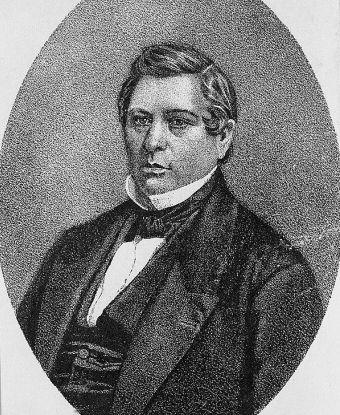Last updated: June 18, 2015
Person
David Wilmot

public domain
A U.S. Congressman (1845-1851) and later Senator (1861-1863) from Pennsylvania, David Wilmot sponsored an amendment to an appropriations bill in the House of Representatives on August 8, 1846, which proposed the banning of slavery in land gained from Mexico in the Mexican-American War. The resolution, which became known as the Wilmot Proviso, passed the House of Representatives, but failed in the Senate. During the next session of Congress, the appropriations bill, with the Wilmot Proviso attached, was bought up again and passed by the House, only to again languish in the Senate.
In the Presidential election of 1848, Wilmot threw his support behind the new Free Soil Party and its candidate, Martin Van Buren, after Democrats rejected the inclusion of the Wilmot Proviso in their platform. The Free Soilers distilled the Proviso down to the campaign slogan: "No more slave states and no more slave territory." Unlike mainstream abolitionists, Wilmot did not abhor the practice of slavery on moral grounds; rather he feared that the South, with its peculiar institution, was gaining too much power.
Having left the Pennsylvania Democratic Party, Wilmot was forced to give up his House seat in 1851. He was elected as a presiding judge of the 13th Judicial District of Pennsylvania. Wilmot then worked to establish the newly founded Republican Party, chairing the platform committee and serving as a delegate to the 1856 national convention. In 1857, he ran unsuccessfully as the first Republican candidate for Governor of Pennsylvania, and three years later he served again as a delegate to his party's national convention. Wilmot helped secure the nomination for Abraham Lincoln, but refused to accept a cabinet post in the Lincoln administration. Instead, he was elected to fill the U.S. Senate seat vacated by Lincoln's Secretary of War, Simon Cameron. Wilmot participated as a member of the Ceace Conference of 1861, a last-ditch attempt to bridge the country's divisions exacerbated by the resolution which bears his name.
